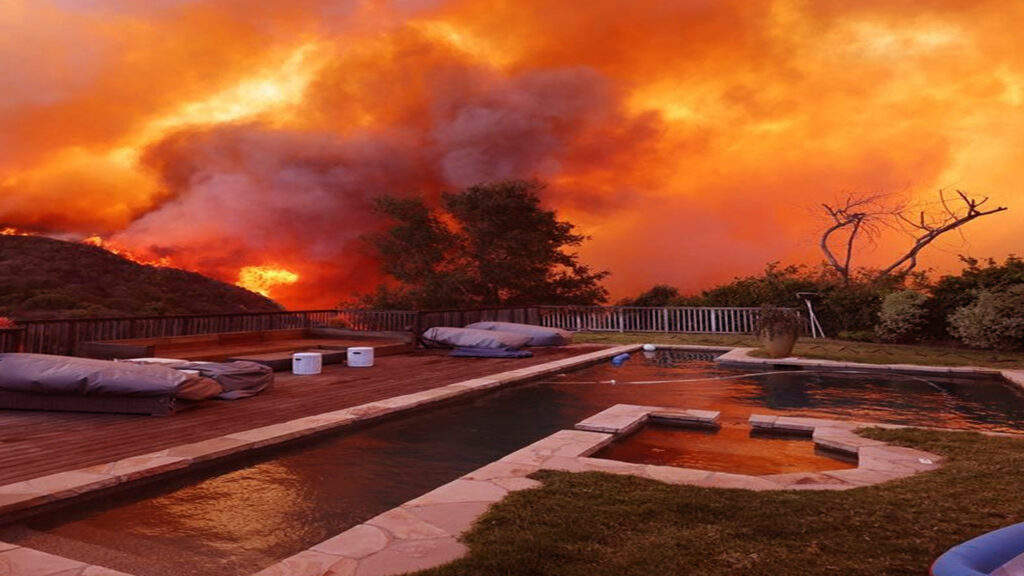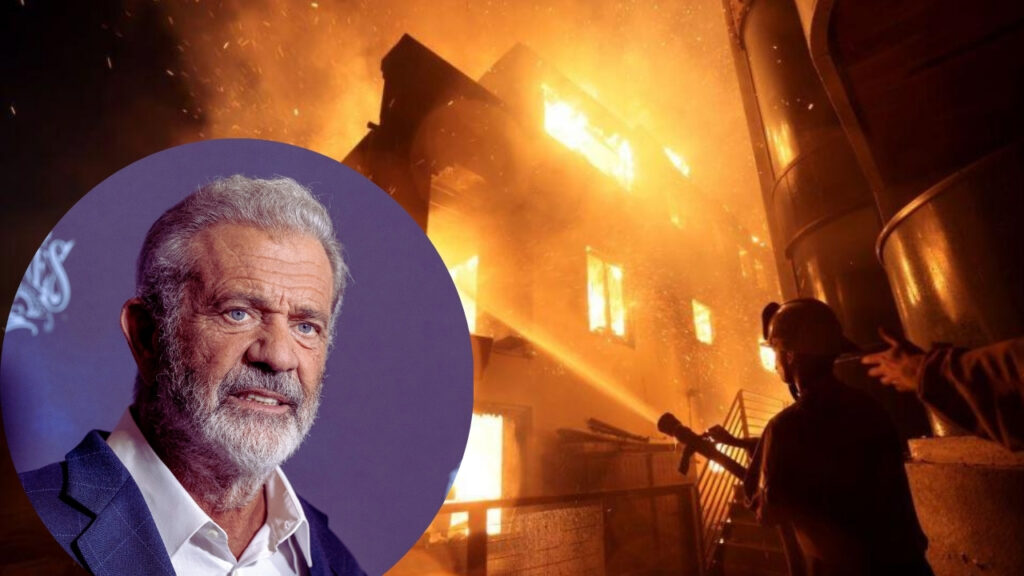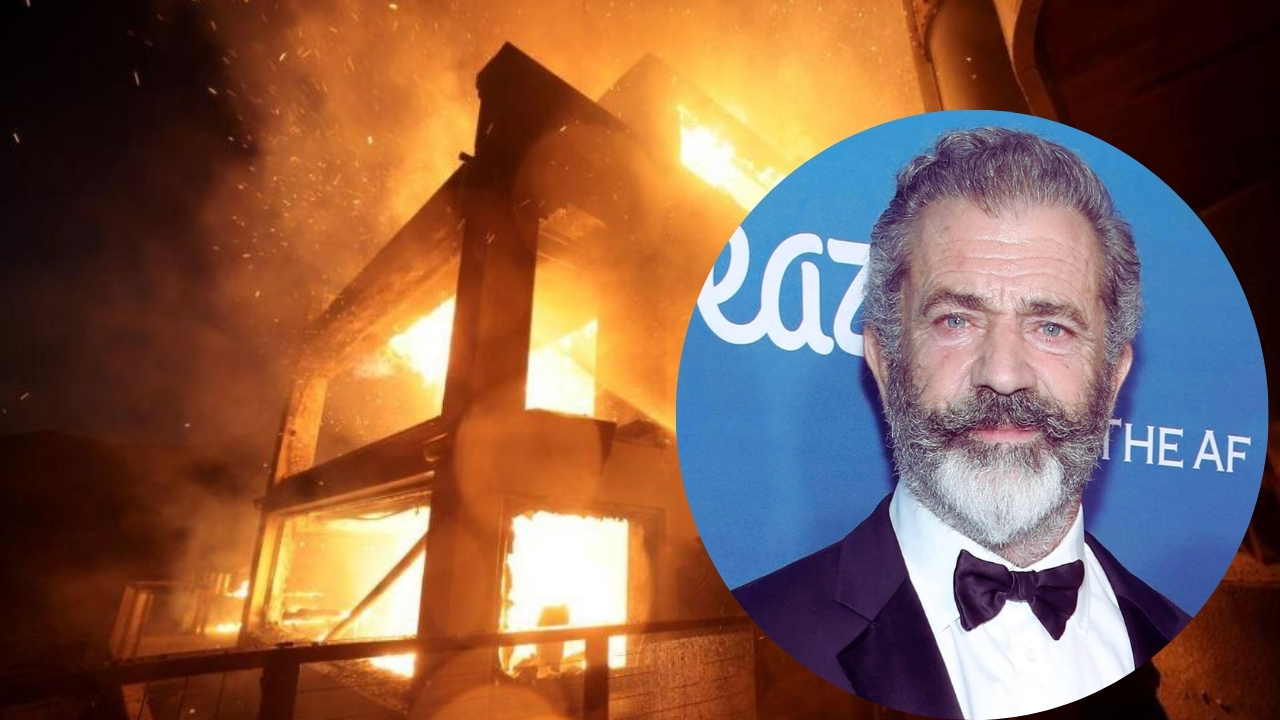In a heart-wrenching revelation, Hollywood icon Mel Gibson shared that his Los Angeles home was completely destroyed in the recent wildfires that ravaged Southern California. Known for his legendary roles in films such as Braveheart and The Passion of the Christ, Gibson opened up about the emotional toll of losing his property in this devastating natural disaster. His personal story sheds light on the growing challenges faced by Californians as wildfires become increasingly severe and frequent.
The Devastating Impact of Wildfires in California

Wildfires have become a recurring nightmare for California residents. Fueled by extreme heat, dry conditions, and high winds, these fires have led to widespread destruction, claiming homes, wildlife, and even lives. According to recent reports, the fire that destroyed Gibson’s home was part of a series of blazes that swept through the Los Angeles area, displacing thousands of families and leaving many with nothing but ashes.
Mel Gibson shared his heartbreak during a press interview, stating, “It’s not just the loss of a structure; it’s the memories, the irreplaceable items, and the sense of security that are gone.” His words echo the sentiments of countless individuals who have faced similar tragedies. “My heart goes out to everyone affected by this disaster,” he added, expressing solidarity with fellow victims.
A Glimpse into Gibson’s Resilience

Despite the immense loss, Mel Gibson expressed gratitude for the safety of his loved ones. “Homes can be rebuilt, but lives are irreplaceable. I’m thankful my family and I are safe,” he said, demonstrating remarkable resilience in the face of adversity. This perspective mirrors the strength of many Californians who must navigate the aftermath of wildfires every year. The shared sense of community and determination to rebuild are often sources of hope during such difficult times.
The Need for Preventive Measures
Experts emphasize that while wildfires are natural phenomena, climate change and human activity have intensified their frequency and severity. Rising temperatures and prolonged droughts create conditions ripe for fires, making prevention more critical than ever. To mitigate future disasters, California officials and environmentalists advocate for improved forest management, stricter building codes in fire-prone areas, and increased public awareness. Individuals are also encouraged to take proactive steps to safeguard their homes and communities.
Practical Tips for Wildfire Preparedness
- Create Defensible Space: Remove flammable vegetation and debris within 100 feet of your home.
- Use Fire-Resistant Materials: Opt for fire-resistant roofing and siding to reduce vulnerability.
- Prepare Emergency Kits: Include essentials such as water, non-perishable food, medications, and important documents.
- Stay Informed: Sign up for local alerts and monitor weather conditions regularly.
How You Can Help
Wildfire victims often face immense financial and emotional challenges. If you’d like to support those affected, consider donating to reputable organizations such as the American Red Cross, California Community Foundation Wildfire Relief Fund, or local community aid groups. Your contributions can provide temporary housing, food, medical care, and other essential resources to families in need. Volunteering your time or spreading awareness about wildfire safety can also make a meaningful impact.
WILDFIRE HELP NEEDED❗The @ASPCA is working closely w/ @PasadenaHumane on emergency relief efforts in California. 350+ animals have been brought to Pasadena Humane due to evacuations, some with burns & other injuries. Donate to Pasadena Humane here: https://t.co/PTcHH9irfy
— Andy Cohen (@Andy) January 10, 2025
Here’s how you can donate to help the wildfire victims in California, and avoid scammers:https://t.co/zKFVWn37qg
— 🎙 тоᴍᴍıᴇ ʟᴇᴇ (@heytommie) January 10, 2025
❤️ Southern California needs our support! Help Embrace Relief & Pacifica Institute aid wildfire victims. Donate: https://t.co/dJ2Ya9VPwm #Community #HelpThoseInNeed #Donate pic.twitter.com/k8vWxyu6LN
— Embrace Relief (@EmbraceRelief) January 10, 2025
Sinclair is partnering with the Salvation Army to support the disaster relief response across Southern California.
Your donations will help provide critical aid, shelter, food, and support for wildfire survivors and first responders in Los Angeles: https://t.co/XcaCJGS5wT pic.twitter.com/4aiRfquSAZ
— News 12 (@wcti12) January 10, 2025
FAQs About Wildfires and Mel Gibson’s Story
Q: How did the wildfires start?
A: The exact cause of the fires is under investigation, but they are often triggered by a combination of natural factors like lightning and human activities such as discarded cigarettes or power line malfunctions.
Q: Where was Mel Gibson’s home located?
A: His home was situated in Los Angeles County, one of the areas heavily impacted by the recent wildfires.
Q: How can homeowners protect their properties from wildfires?
A: Homeowners can take steps such as maintaining a defensible space around their homes, using fire-resistant materials for construction, and staying informed about fire safety protocols.
Q: Is Mel Gibson planning to rebuild?
A: Gibson has not confirmed rebuilding plans but has expressed hope and resilience in moving forward after this tragic event.
Q: What organizations are assisting wildfire victims?
A: Groups like the American Red Cross, California Community Foundation, and local community centers are actively providing relief and support to those affected.

Conclusion
The loss of Mel Gibson’s home serves as a stark reminder of the unpredictability and devastation caused by wildfires. As these disasters increase in frequency and intensity, stories like Gibson’s underscore the urgent need for preventive measures and community resilience. While the emotional and physical scars of such events run deep, collective efforts in prevention, response, and recovery remain crucial for a safer future.
Share Your Thoughts
Have you or someone you know experienced a wildfire? Share your story or safety tips in the comments below and help spread awareness about wildfire preparedness. Together, we can make a difference in minimizing the impact of these natural disasters.

